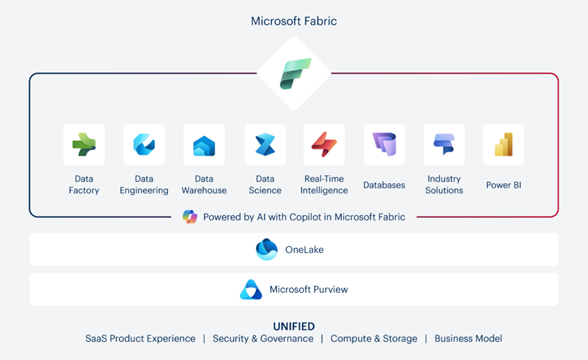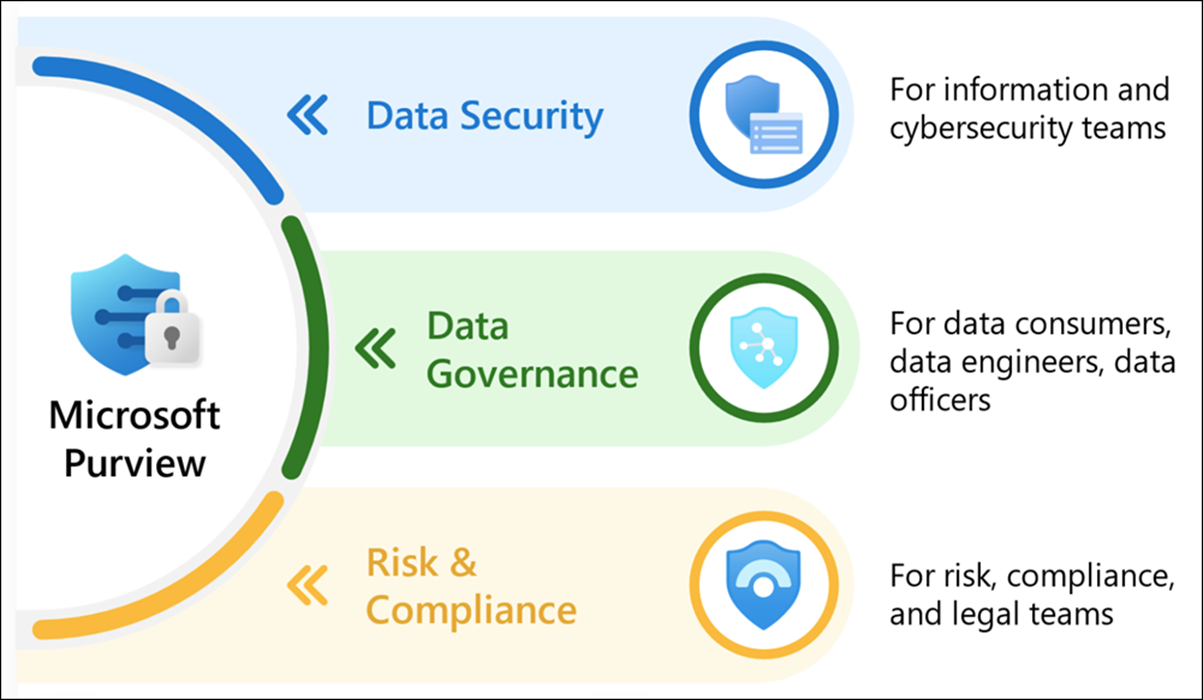From Start-up to Enterprise: one platform, infinite insights with Microsoft Fabric
In today’s fast-paced digital landscape, making informed decisions is no longer a competitive advantage—, it’s a necessity. Whether you're a small startup, a growing mid-sized business, or a large enterprise, the ability to harness data effectively can define your success. Microsoft Fabric, the unified analytics platform introduced by Microsoft, is built to meet this challenge head-on. By integrating data engineering, business intelligence, and AI within a single platform, it empowers companies of all sizes to become truly data driven.
What is Microsoft Fabric?
Microsoft Fabric is a cloud-based, end-to-end data platform that combines services like Power BI, Azure Synapse, Data Factory, and Azure Data Lake into a seamless experience. It simplifies data integration, management, and analysis through a single portal. With a lake-centric architecture and support for open data formats like Delta Lake and Apache Parquet, Fabric eliminates data silos and improves collaboration between teams.
Why It Matters for Small Businesses
Small businesses often struggle with limited resources and fragmented data sources. Microsoft Fabric levels the playing field by offering:
Unified analytics tools, that are easy to adopt and scale.
Pay-as-you-go pricing models, making it accessible without heavy upfront investment.
Integration with familiar tools like Excel and Power BI, minimizing the learning curve.
This allows small companies to turn raw data into actionable insights quickly guiding everything from marketing campaigns to inventory management with precision.
Small Business Example – Retail Boutique with Online Sales
Scenario:
A local clothing boutique with both a physical store and an online shop wants to better understand customer buying behavior.
How Microsoft Fabric Helps:
Using Power BI within Fabric, the owner can connect data from their Shopify store, POS system, and Google Ads into OneLake. With minimal setup, they create reports showing:
Which products are top-sellers per channel
What times of year see peak sales
How marketing campaigns influence online purchases
This helps the boutique make smarter inventory and marketing decisions, without needing a data team.
Scaling With Mid-Sized Organizations
For mid-sized businesses, growth introduces complexity. Data becomes more abundant but harder to control. Microsoft Fabric supports scalability by:
Automating data pipelines with Data Factory to reduce manual ETL efforts.
Centralizing governance through Microsoft Purview integration, ensuring data quality and compliance.
Enabling collaborative workspaces, so analysts, engineers, and decision-makers can co-create insights in real-time.
Fabric also facilitates advanced analytics, such as predictive modeling, without requiring a dedicated data science team. This helps medium-sized companies make proactive, not just reactive, decisions.
Mid-Sized business Example – Manufacturing Company
Scenario:
A mid-sized manufacturing firm operates across three countries and wants to optimize its supply chain to reduce delays and costs.
How Microsoft Fabric Helps:
Using Data Factory in Fabric, they ingest data from ERP systems, logistics partners, and machine sensors into a unified data lake. A business analyst uses Power BI to create real-time reports tracking:
Supplier delivery performance
Inventory turnover rates
Machine downtime trends
By spotting inefficiencies and forecasting shortages, the company makes informed procurement and production decisions—boosting operational efficiency.
Enterprise-Grade Power for Large Organizations
Enterprises deal with massive data volumes across departments, regions and platforms. Microsoft Fabric handles this complexity by offering:
Enterprise-scale data lakes with OneLake, a single logical data lake for the entire organization.
Real-time analytics are powered by Synapse Real-Time Analytics and Event Streams.
Security and compliance across global standards, critical for regulated industries.
Large companies benefit from Fabric’s open and expandable foundation, enabling seamless integration with existing data ecosystems and AI models. Strategic decisions, from product development to customer engagement, can be data-driven at every level.
Large Enterprise Example – Global Insurance Provider
Scenario:
A multinational insurance company wants to detect fraud more effectively and improve customer service through predictive analytics.
How Microsoft Fabric Helps:
Fabric’s Real-Time Analytics and Data Science workloads are used to process millions of claims across regions. Using integrated AI models, the company:
Flags suspicious claims in real time
Identifies customers likely to churn
Suggests tailored policy upgrades for each client
All departments, from fraud teams to marketing, access shared, governed data through Microsoft Purview, ensuring compliance and collaboration at scale.
Conclusion
Microsoft Fabric democratizes access to data analytics, making it easier for companies—regardless of size to make smarter, faster and more reliable decisions. By breaking down silos, automating workflows and promoting collaboration. It’s not just a tool, Fabric is a catalyst for transformation.
Do you recognize any of the struggles mentioned in this blog post? Not sure which approach to take? Sign up now and let us guide you through the wonderful world of Fabric!
Want to implement this in your workflow, too?
A driven Analytics Consultant with a passion for BI, sharing insights through training and teamwork while enjoying the gym and guitar in his free time.



